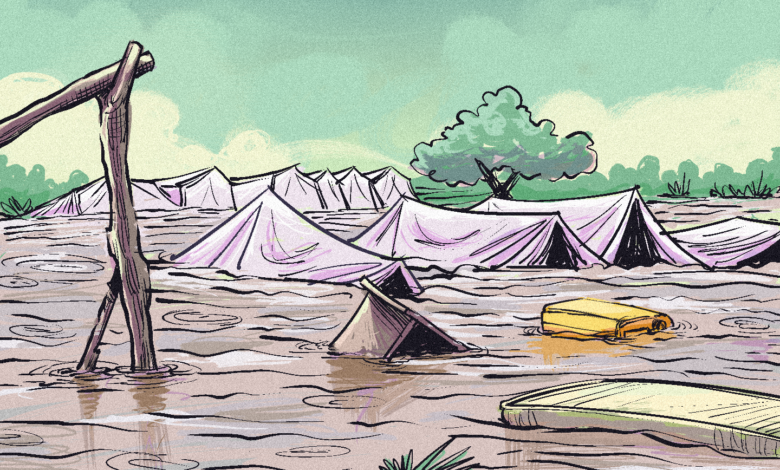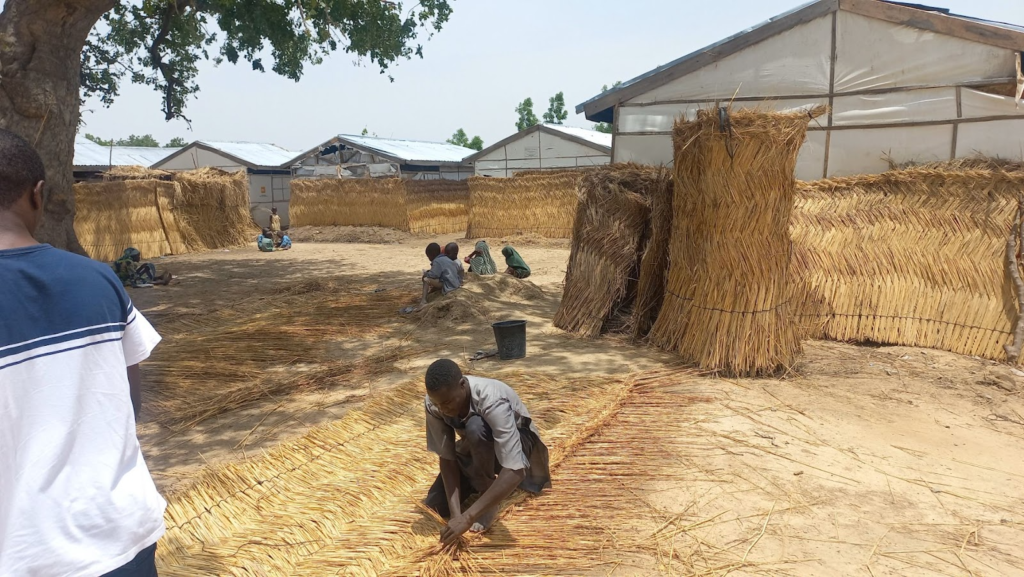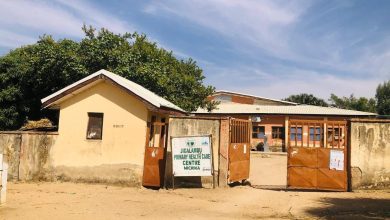Unofficial Displacement Camp Devastated By Early Rains In Nigeria’s Maiduguri
This year's first significant downpour in Borno state, northeast Nigeria, destroyed weather-beaten shelters and flooded surroundings in an unofficial internally displaced people’s camp in Maiduguri. Inhabitants fear a repeat of the catastrophic flooding seen in 2022.

The year’s first significant downpour in Borno state, northeast Nigeria, has ruined the huts of displaced people in an unofficial camp in the state capital, spreading fear that there is worse to come.
The rainfall and high winds destroyed already weather-beaten shelters, flooded surroundings in the Muna Kumburi camp in Maiduguri.
Heavier rains are predicted by meteorological authority NIMET and the national disaster relief organisation NEMA. These could see a repeat of the devastating flooding and highlight displaced persons’ vulnerability that spread across the country in 2022.
“We are not safe here. This first rain has destroyed our houses,” says Amina, an internally displaced person (IDP) with five children, as she surveyed the ruins of her makeshift home.
After months of waiting for the rain to relieve the scorching heat, the first significant downpour in June came with a fierce windstorm that destroyed the weather-beaten thatch and tarpaulin shelters in unofficial camps.
Although the floodwaters quickly dried up, the residents are left with an ominous reminder of what they must brace themselves for as the rains become more frequent in July and August.
Just the beginning
Residents had to collect new materials to rebuild their huts, knowing it may not be long until they are flooded again.
The Nigeria Meteorological Agency (NIMET) and the National Emergency Management Agency (NEMA) have warned of heavier rains this year, which could lead to devastating flooding. The situation in the IDP camps is a stark reminder of the vulnerability of displaced persons in the face of natural disasters and other external factors.
Malam Yasami, a resident of Muna Kumburi, shares his experience: “This is just the beginning of the season, and our houses have been destroyed, and we were submerged in floodwater.”
According to Yasami, a leader of the community, there are around 7,000 people currently living in the Muna Kumburi camp. They are all residing in traditional shelters made of tarpaulin, which were provided by the Danish Refugee Council and USAID approximately five years ago.

However, due to the harsh sunlight, the tarps have become stiff and brittle. As a result, whenever a storm arrives, the shelters easily crack open or tear them into shreds, exposing the inhabitants.
The Borno State Primary Health Care Development Agency (SPHCDA) has warned of the possible cholera outbreak and other related waterborne diseases in flooded areas with poor sanitation if steps are not taken to avert the situation.
Ongoing plight
The Borno State Emergency Management Agency (BOSEMA) has not been providing support services to the IDPs in unofficial camps because its mandate only covers camps registered by the government, and all of them have been closed since the last quarter of 2022.
Governor Babagana Zulum has vowed to shut down the camps as he takes yet another second and final tenure on May 29, 2023.
The rainy season has highlighted the ongoing plight of internally displaced persons (IDPs) in Maiduguri and other parts of Borno State.
Yasami, like many other IDPs, is filled with fear and apprehension as he contemplates the coming months of rain. He is left unsure about what steps to take next to protect himself and her family.
In the camp, men were observed using typha grass to create roofing sheets, which internally displaced persons could purchase to rebuild their destroyed homes. This was happening throughout the camp.
For most IDPs, when the rain falls, their heart sinks with it as they are reminded of the struggle and uncertainty of being an IDP.
Many of them said they hold on to hope that one day the skies of the conflict will clear, and they will find a place to call home.
Support Our Journalism
There are millions of ordinary people affected by conflict in Africa whose stories are missing in the mainstream media. HumAngle is determined to tell those challenging and under-reported stories, hoping that the people impacted by these conflicts will find the safety and security they deserve.
To ensure that we continue to provide public service coverage, we have a small favour to ask you. We want you to be part of our journalistic endeavour by contributing a token to us.
Your donation will further promote a robust, free, and independent media.
Donate HereStay Closer To The Stories That Matter




